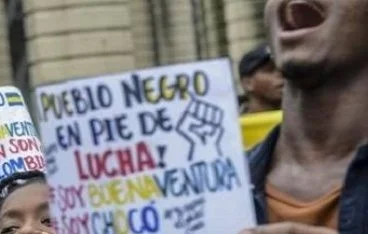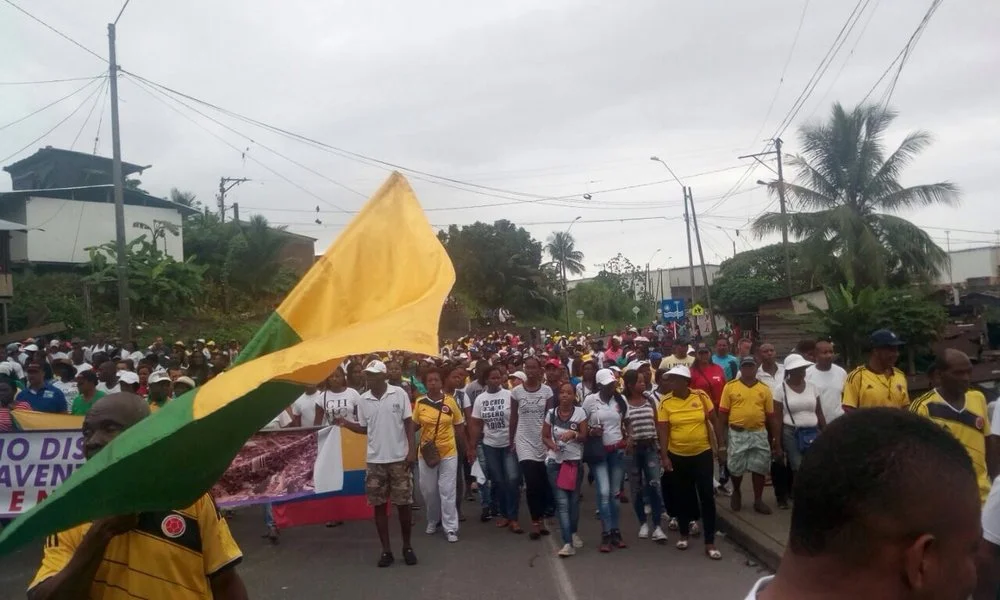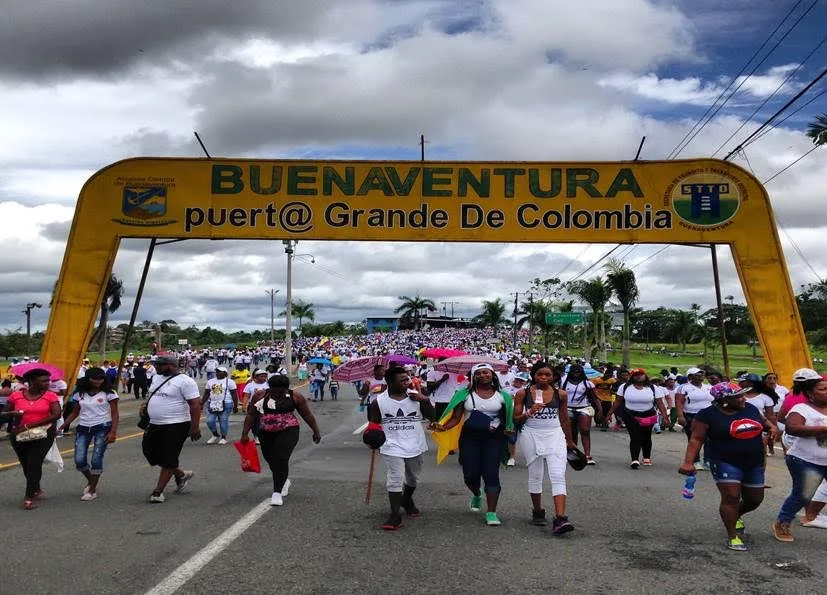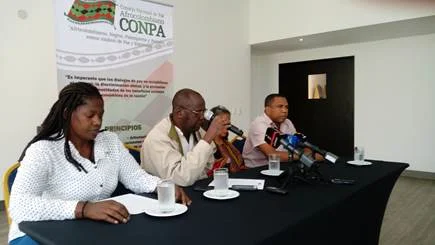This is a statement from BAP member Charo Mina-Rojas, who is based in Calí, Colombia:
Greetings everyone.
I'm happy to inform that the Civic Strike in Buenaventura has reached an agreement with the national government and the strike has been suspended.
This is a major and historical moment not only for the people in Buenaventura but for Black movement and people in Colombia. The strike demonstrated to racist Colombians and Colombian government that for years have been indifferent to the suffering of centuries of racism, exclusion, abject poverty and state sanctioned and non-state violence, that Black people had reached a point where no more would be tolerated.
The agreement has four important components:
The creation of a special autonomous fund with resources that are consider patrimony of the people in Buenaventura, coming from 50% of the taxes from the business and companies that profit from activities related to the port, plus $76 million dollars that the government will raise from credits with international banks, regulated by a law that should be signed in a month.
A initial investment of COP$1.500 billions to address the immediate needs for basic infrastructure for water, health and sanitation services in rural and urban areas.
An integrated development plan for the city that includes certain institutional reforms and effective community participation with objective to make of Buenaventura a port for the people and not simply for profit.
The proper investigations and penalization for the abuses and human rights violations committed by state forces, guaranties for those who has been criminalized and ensuring security and protection for the many leaders that guided the 22 days of peaceful, organized and successful struggle.
In the name of the people in resistance in Buenaventura, in the name of the Black Communities' Process in Colombia (PCN) and me, thank you for your unconditional fraternal solidarity. Your participation helped to put the pressure and ensure that an action that main stream media was eager to minimize and ignore got international attention, interest and support.
Although it has been a historic victory, this is not the end. These agreements can be easily ignored by the Colombian government. Also, some in government and in civil society have condemned the Buenaventura leaders for the significant loss of money that resulted from the strike. We certainly expect that for those individuals, many connected to the paramilitary elements that are still present in our communities, that this expression by the people will not be forgotten. That is in many ways the Colombian way. But we will not be deterred. With your help, we will continue to struggle for self-determination for ourselves, but also on behalf of all who are resisting oppression and struggling for new societies.
Things you can do now:
- Issue a statement in support of the people of in Buenaventura. Recognize them for their strength and courage, but also the level of political clarity and organization that made the strike successful.
- Continue condemning the violent repression and violations that were committed by the state forces and ask Colombian authorities to ensure proper investigation and penalization of the ESMAD as whole. There is not point on looking for individuals, the ESMAD as part of police institution committed serious violations of human rights and humanitarian provision, abusing its responsibility to provide security and instead creating a war-like situation against unarmed civilians, particularly in neighborhoods at night when people was sleeping. Reports from the Strike's human rights committee counted 209 children severely affected by tear gas, and still counting.
- Condemn the negligent response of president Juan Manuel Santos who could have controlled the ESMAD excesses. Remind him of his duty as a Nobel Peace Prize winner and head of a peace-building process that the whole world is watching.
- We will still be in need for translations and organizing brief reports on writing, audio and video. There are a number of people, including me, that are available for interviews in Spanish and English. Much still needs to be said about the Buenaventura strike.
- Consider organizing visits to Buenaventura for monitoring purposes, and stay informed about the developments of the agreement.
- I will be in the United States, mostly in the south from June 16 to July 4. Consider organizing conversations with your community, radio talks or any other opportunity to educate people about the struggle in Colombia. I will be happy to accommodate to the best of my possibilities while there. If you would like to bring me to your community, please send a message to info@blackallianceforpeace.com
- If possible, those with the knowledge, help us to thank the Orishas for protecting and guiding the people and leaders in Buenaventura, and pray for their safety.
This is a time for moving from fraternal solidarity to broader movement building with common agendas for the liberation and self-determination of Black people. We are one people. My struggle is your struggle.
Thank you very much from our hearts.
The struggle continues.
Charo Mina-Rojas, Proceso de Comunidades Negras









